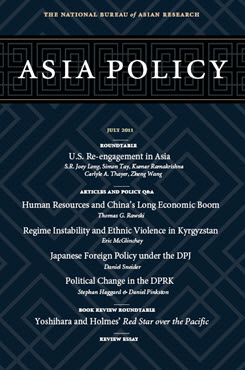Exploring Regime Instability and Ethnic Violence in Kyrgyzstan
This article explores the causes of Kyrgyzstan’s enduring political instability and periodic ethnic violence.
EXECUTIVE SUMMARY
MAIN ARGUMENT
At least 350 people died and more than 100,000 people were displaced in clashes between ethnic Kyrgyz and ethnic Uzbeks in southern Kyrgyzstan between June 10 and June 14, 2010. Most explanations for the violence focus on incidents immediately preceding the conflict: a brawl between Uzbeks and Kyrgyz at a casino, the alleged rape of Kyrgyz women at a university dormitory, and turf wars between crime syndicates. While these actual and alleged precursors no doubt helped spark the ethnic riots, this article suggests that structural causes—political elite fragmentation and a civil society that can readily be mobilized for both liberal and illiberal ends—are behind the June 2010 ethnic violence and Kyrgyzstan’s enduring political instability. Roza Otunbayeva’s interim government has overlooked these deep-seated structural challenges. Most notably, the government’s attempt to establish democratic credentials immediately after assuming power in April 2010 undermined the elite status quo and, in so doing, prompted political entrepreneurs to defend their interests through violent street protests. In short, the Otunbayeva government’s decision to dissolve the corrupt and compromised national parliament alienated elite constituencies critical to the maintenance of power and order in Kyrgyzstan’s south.
POLICY IMPLICATIONS
International partners can better engage the complex constellation of Kyrgyz authorities and thereby assist them in mitigating ethnic conflict by recognizing the following two realities, which, though unsettling, nevertheless deserve emphasis:
- Rapid attempts to create the formal institutions of liberal democracy can undermine illiberal yet peace—and stability—sustaining institutions of autocracy.
- The Kyrgyz national government does not enjoy a monopoly of power across state territory; thus, foreign policy toward Kyrgyzstan must take into account regional as well as national-level configurations of authority.
About Asia Policy
Asia Policy is a peer-reviewed scholarly journal presenting policy-relevant academic research on the Asia-Pacific that draws clear and concise conclusions useful to today’s policymakers. Asia Policy is published quarterly in January, April, July, and October and accepts submissions on a rolling basis. Learn more


